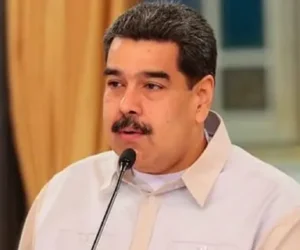So you want to know about Tony Elumelu? Smart choice. Whether you’re an aspiring entrepreneur looking for inspiration, a business student researching African success stories, or just curious about one of the continent’s most influential figures, you’re in the right place. Let me walk you through the fascinating journey of a man who transformed from a youth corps member at a struggling bank into a billionaire philanthropist empowering thousands of African entrepreneurs.
Here’s the thing about Tony Elumelu that most people don’t get right away – he’s not just another rich businessman. This guy literally created his own economic philosophy called “Africapitalism” and is putting his money where his mouth is by investing $100 million to fund 10,000 African entrepreneurs. But I’m getting ahead of myself. Let’s start from the beginning and unpack this remarkable story together.
From Jos to Billions: Understanding Tony Elumelu’s Roots
Anthony Onyemaechi Elumelu was born on March 22, 1963, in Jos, Plateau State, Nigeria. Now, before you think this is just another story about a privileged kid who had everything handed to him, let me stop you right there. Tony came from humble beginnings that would shape his entire approach to business and wealth creation.
His parents, Suzanne and Dominic Elumelu, originally hailed from Onicha-Ukwu in Aniocha North Local Government Area of Delta State. His mother was a restaurateur and distributor – basically an entrepreneur herself – while both parents were educators. Growing up with four siblings, including Ndudi Elumelu who would later become a prominent politician and minority leader in Nigeria’s House of Representatives, Tony learned early that hard work and education were non-negotiable.
Here’s what strikes me about his upbringing: he grew up in an environment where entrepreneurship and education weren’t seen as separate paths but as complementary forces. His mother’s business acumen combined with his parents’ academic focus created the perfect foundation for what would become one of Africa’s most successful business careers.
Being Igbo by ethnicity, Tony also inherited that famous Igbo entrepreneurial spirit – you know, that drive to build something from nothing, that refusal to accept limitations. But he didn’t just rely on cultural advantages; he backed it up with serious academic credentials.
The Educational Foundation That Built a Banking Empire
Let’s talk about Tony Elumelu’s education, because this part is crucial to understanding how he thinks. He attended Bendel State University, now known as Ambrose Alli University, where he earned his Bachelor of Science degree in Economics. Now, here’s something interesting – he graduated with a Lower Second Class, what we call a 2:2 in Nigeria.
Why am I telling you this? Because it proves that your undergraduate grades don’t define your destiny. While everyone is obsessing over getting first-class honors, Elumelu was probably already thinking about real-world applications of economics rather than just memorizing theories for exams.
But he didn’t stop there. He went on to the University of Lagos and obtained his Master of Science degree in Economics. This advanced degree gave him the theoretical framework to understand macroeconomic trends, market dynamics, and financial systems – knowledge that would prove invaluable in his banking career.
Later, he would also complete an advanced management program at Harvard Business School. That’s the Harvard Business School we’re talking about – where global business leaders go to sharpen their strategic thinking. This combination of Nigerian university education and Harvard-level executive training created someone who understood both African realities and global best practices.
The Banking Career That Changed Everything
This is where Tony Elumelu’s story gets really interesting. In 1985, fresh out of university, he joined Union Bank as a youth corps member during his mandatory National Youth Service Corps year. Think about that for a moment – he started as a corps member, basically an entry-level trainee position.
After NYSC, he didn’t have some magical connection that catapulted him to the top. He started as a salesman. Yes, a salesman. Can you imagine a future billionaire going door-to-door trying to convince people to open bank accounts? But that experience taught him something invaluable: how to understand customers, how to sell value, how to build relationships.
His career progression reads like a masterclass in climbing the corporate ladder strategically. He moved to All States Trust Bank in 1988 as a financial analyst, then became head of various units – Energy/Export, Multinational Unit, Port Harcourt Branch Manager, and eventually Executive Director.
But 1997 was the game-changer. At just 34 years old, Tony led a small group of investors to acquire a struggling commercial bank called Crystal Bank (later renamed Standard Trust Bank). This move would define his entire career trajectory.
The Standard Trust Bank Turnaround: A Masterclass in Strategic Vision
Here’s where we see Tony Elumelu’s genius in action. Most people saw Crystal Bank as a failing institution – a risky investment nobody wanted. Tony saw opportunity. He rebranded it as Standard Trust Bank and implemented strategies that would become his signature approach: aggressive expansion, customer-centric services, and leveraging technology.
Under his leadership as Managing Director and CEO from 1997 to 2005, Standard Trust Bank transformed from a small, struggling Lagos-based bank into a significant player in Nigerian banking. But Tony was thinking bigger – much bigger.
In 2005, he orchestrated one of the most significant mergers in African banking history. Standard Trust Bank merged with United Bank for Africa (UBA) in an all-share transaction. And guess who became the Group Managing Director and CEO of this new, expanded UBA? You got it – Tony Elumelu.
Building a Pan-African Banking Giant: The UBA Transformation
What Tony did with UBA between 2005 and 2010 is the stuff of business school case studies. He didn’t just manage a bank; he built a pan-African financial services powerhouse. Under his leadership, UBA expanded from operating primarily in Nigeria to having presence in 20 African countries, plus the United Kingdom, France, and the United States.
Let me put this in perspective: UBA became the only African bank with commercial deposit-taking presence in the United States. That’s not just about opening an office; it’s about meeting strict US banking regulations and building trust in one of the world’s most scrutinized financial markets.
By the time Elumelu stepped down as CEO in 2010, UBA was serving over 21 million customers globally, offering corporate, commercial, SME, and consumer banking services. He had transformed a regional bank into an African banking leader with international reach.
But here’s what separates Tony from most banking executives: he didn’t just build a profitable bank. He used banking as a tool for broader economic development, laying the groundwork for what would become his signature philosophy.
The Birth of Africapitalism: More Than Just a Buzzword
In 2010, after leaving his position at UBA, Tony Elumelu introduced the world to “Africapitalism” – a term he coined to describe his economic philosophy. Now, you might be thinking this is just another fancy business concept, but hear me out because this is actually revolutionary.
Africapitalism is built on a simple but powerful idea: the private sector, through long-term investments in strategic sectors, can be the key driver of economic prosperity and social wealth in Africa. It’s capitalism with an African twist – one that emphasizes both profit and social impact.
Traditional capitalism often focuses purely on maximizing shareholder returns. Africapitalism says, “Yes, make profits, but do it in ways that create jobs, build infrastructure, and improve communities.” It’s about businesses being engines of both economic growth and social development.
This isn’t just theoretical philosophy for Tony. Everything he’s done since 2010 – from Heirs Holdings to the Tony Elumelu Foundation – is built on this principle. He’s literally putting billions of dollars behind this idea, proving that African businesses can be profitable while positively impacting society.
Heirs Holdings: Diversification as a Growth Strategy
When Tony stepped down from UBA in 2010, he founded Heirs Holdings – his family-owned investment company. This wasn’t about retirement or slowing down; it was about scaling up and diversifying his impact.
Heirs Holdings operates on the Africapitalism principle, making long-term investments across strategic sectors: financial services, energy, power, hospitality, healthcare, technology, and real estate. The portfolio includes controlling interests in major companies like Transnational Corporation (Transcorp), one of Nigeria’s largest conglomerates.
Let’s talk about Transcorp for a moment because it shows Tony’s strategic thinking. Through Heirs Holdings, he controls Transcorp, which has subsidiaries in power generation (Transcorp Power, one of Nigeria’s largest electricity generators) and hospitality (Transcorp Hotels, Nigeria’s premier hospitality brand).
On April 14, 2021, Tony officially received full ownership of Transcorp Hotels after fulfilling all privatization conditions from the 2005 sale. This wasn’t a quick flip; this was a 16-year strategic investment finally coming to full fruition.
In healthcare, Heirs Holdings invested in Avon Medical Practice, with Tony’s wife Dr. Awele Vivien Elumelu serving as chairperson. In energy, the company has investments in oil and gas exploration and production. In real estate, they’ve developed prime properties contributing to urban development in Nigeria.
The strategy is clear: invest in sectors critical to African development, create long-term value, generate profits, and reinvest those profits into more development. It’s capitalism with intentionality.
The Tony Elumelu Foundation: Putting $100 Million Where It Matters
This is where Tony Elumelu’s legacy truly cements itself. In 2010, the same year he founded Heirs Holdings, he established the Tony Elumelu Foundation with a mission that seemed almost too ambitious: empower African entrepreneurs at scale.
In 2015, he made a commitment that shocked many people: $100 million over 10 years to identify, train, mentor, and fund 10,000 African entrepreneurs. Let me break down why this is such a big deal.
First, the sheer scale. We’re not talking about funding a few dozen entrepreneurs in one city. We’re talking about 10,000 entrepreneurs across all 54 African countries over a decade. That’s systematic, continent-wide entrepreneurship development.
Second, the comprehensive approach. The Tony Elumelu Foundation Entrepreneurship Programme doesn’t just throw money at people. It provides a 12-week training program, ongoing mentorship from successful business leaders, $5,000 in seed funding, and access to a network of African entrepreneurs.
Third, the multiplier effect. Each entrepreneur funded creates jobs, serves customers, and potentially inspires others. If each of the 10,000 entrepreneurs creates just 5 jobs, that’s 50,000 jobs. If each serves 100 customers, that’s 1 million people directly impacted. The economic ripple effects are massive.
As of 2024, the Foundation has funded nearly 10,000 entrepreneurs and created a digital ecosystem of over one million Africans. They’ve partnered with global organizations like the United Nations Development Programme and the International Committee of the Red Cross to extend their reach.
Personal Life: The Man Behind the Billions
Let’s talk about Tony Elumelu the person, not just the businessman. In 1993, he married Dr. Awele Vivien Elumelu, a medical doctor who shares his passion for development and philanthropy. Together, they have seven children – five daughters and twin sons.
This family dynamic is important because it shows balance. Despite building billion-dollar businesses and empowering thousands of entrepreneurs, Tony maintains strong family values. His wife isn’t just a supportive spouse; she’s actively involved in healthcare investments through Heirs Holdings, leading Avon Medical Practice.
The couple represents a power partnership where both contribute to economic and social development from their respective areas of expertise – him through banking, investments, and entrepreneurship; her through healthcare and medical practice.
Tony’s brother, Ndudi Elumelu, serves as minority leader in Nigeria’s House of Representatives, showing that the family’s influence extends across business and politics. Yet Tony himself has remained largely apolitical in his business dealings, focusing on economic development rather than political positioning.
Recognition and Awards: When the World Takes Notice
When you’re transforming African entrepreneurship and building continental business empires, people notice. Tony Elumelu’s trophy cabinet includes some seriously impressive recognition.
In 2020, Time magazine named him one of the 100 most influential people in the world. That’s not “most influential Africans” or “most influential businesspeople” – it’s most influential people, period. Sharing space with world leaders, tech innovators, and cultural icons.
The Nigerian government has honored him multiple times. In 2003, he received the Member of the Order of the Federal Republic (MFR). In 2012, he was awarded the Commander of the Order of the Niger (CON), one of Nigeria’s highest national honors, recognizing his contributions to promoting private enterprise.
In 2020, the Kingdom of Belgium conferred on him the honorary distinction of Officer in the Order of Leopold, Belgium’s oldest and most important national honor. That’s international recognition of his impact beyond African borders.
He was named Forbes Africa Person of the Year in 2013, sits on the World Economic Forum Community of Chairmen, and serves on the Global Board of UNICEF’s Generation Unlimited. These aren’t ceremonial positions; they’re platforms where he influences global development policy and business strategy.
Understanding Tony Elumelu’s Net Worth and Business Empire
Let’s address what everyone wants to know: how much is Tony Elumelu actually worth? Various sources estimate his net worth between $700 million and over $1 billion as of 2024. The exact figure fluctuates based on stock valuations and private investments, but one thing is clear – he’s one of Africa’s wealthiest individuals.
But here’s what’s more interesting than the number: how that wealth is structured and deployed. Unlike some billionaires who hoard wealth or invest purely for maximum returns, Tony’s wealth is actively working to create more wealth for others.
Through Heirs Holdings, he controls:
- United Bank for Africa (UBA) – Chairman
- Transcorp Nigeria – Chairman
- Transcorp Power – One of Nigeria’s largest power generators
- Transcorp Hotels – Nigeria’s premier hospitality brand
- Avon Medical – Healthcare services
- Multiple energy, real estate, and technology investments
Each of these investments serves dual purposes: generating returns for shareholders while contributing to African economic development. That’s Africapitalism in action.
The Philosophy That Drives Everything
Understanding Tony Elumelu means understanding his core beliefs about business and development. His speeches and writings consistently emphasize several key themes.
First, he believes passionately in the power of entrepreneurship to transform Africa. Not government programs, not foreign aid – entrepreneurship. Give people the tools, training, and capital to build businesses, and they’ll create the jobs and economic growth Africa needs.
Second, he emphasizes inclusion. In his own words about artificial intelligence and global frameworks: “We must make sure that global frameworks, for AI governance, for data, for finance, include African voices. Because inclusion is not automatic; it must be intentional.”
Third, he’s optimistic about Africa’s potential while being realistic about its challenges. He often says things like, “We have something the world envies: youth, creativity, and a hunger to build.” That’s not blind optimism; it’s strategic recognition of Africa’s demographic dividend.
Fourth, he believes in leveraging technology for development. Whether it’s AI reaching remote clinics, educational content in local languages, or data helping small farmers improve yields, he sees technology as an enabler of African development.
The Strategic Sectors Approach
Tony Elumelu doesn’t randomly invest in whatever looks profitable. He’s extremely strategic about sector selection, focusing on areas critical to African development.
Financial services came first because access to capital is fundamental to business growth. Energy and power followed because reliable electricity is prerequisite for industrialization. Hospitality supports tourism and business travel. Healthcare addresses a critical social need while being economically viable. Real estate creates infrastructure for urban development. Technology enables leapfrogging traditional development stages.
Each sector choice reflects deep thinking about what Africa needs for sustainable development. It’s not about chasing the highest returns; it’s about investing in sectors that compound economic and social benefits.
Lessons from Tony Elumelu’s Journey
If you’re still with me, you’ve probably picked up on several powerful lessons from the Tony Elumelu biography. Let me make them explicit because these insights can transform how you think about business and success.
First lesson: your starting point doesn’t determine your destination. Tony went from youth corps member to billionaire. That 2:2 degree didn’t hold him back because he focused on learning and applying knowledge rather than just collecting certificates.
Second lesson: strategic acquisitions can leapfrog organic growth. Buying Crystal Bank in 1997 and merging Standard Trust with UBA in 2005 accelerated his impact far beyond what organic growth could achieve.
Third lesson: think continental, not just local. While competitors focused on Nigerian markets, Tony built a pan-African empire. That expansive thinking created competitive advantages and risk diversification.
Fourth lesson: profit and purpose aren’t opposites. Through Africapitalism, he’s proving you can build profitable businesses while creating significant social impact. It’s not either/or; it’s both/and.
Fifth lesson: institutionalize your impact. The Tony Elumelu Foundation ensures that even after he’s gone, African entrepreneurs will continue receiving support. That’s thinking beyond personal legacy to institutional legacy.
Sixth lesson: marry vision with execution. Lots of people have big ideas about transforming Africa. Tony actually built the businesses, funded the entrepreneurs, and created the jobs. Ideas mean nothing without execution.
The Current Chapter: What Tony Elumelu is Doing Now
As of 2024, Tony Elumelu remains actively involved across his business and philanthropic interests. He chairs UBA, steering its continued expansion across Africa and internationally. He chairs Transcorp, overseeing investments in power generation and hospitality. He leads Heirs Holdings, identifying new investment opportunities aligned with Africapitalism principles.
The Tony Elumelu Foundation continues expanding its entrepreneurship program, having funded nearly 10,000 entrepreneurs and aiming to complete its initial 10,000 by 2025. The Foundation has also become a model for other philanthropic initiatives, sharing its methodology with international development organizations.
Tony frequently speaks at global forums about African development, AI governance, and private sector’s role in economic growth. He’s using his platform to ensure African perspectives shape global policies that affect the continent.
He’s also increasingly focused on mentoring the next generation of African business leaders. Through formal programs and informal relationships, he’s passing on lessons learned from his four-decade business career.
Why Tony Elumelu’s Story Matters to You
Whether you’re in Nigeria, somewhere else in Africa, or anywhere in the world, the Tony Elumelu biography offers relevant lessons. If you’re an aspiring entrepreneur, his story shows that starting small doesn’t mean staying small – strategic thinking and execution can scale impact dramatically.
If you’re a business student, his career demonstrates how economic theory applies to real-world wealth creation. That economics degree wasn’t just academic exercise; it provided frameworks for understanding markets, capital, and development.
If you’re interested in African development, his Africapitalism philosophy offers a practical model for how private sector investments can drive economic growth while creating social wealth. It’s capitalism adapted for African realities and opportunities.
If you’re already in business, his strategic approach – focusing on critical sectors, building pan-African reach, balancing profit and purpose – provides a blueprint for sustainable business growth.
The Road Ahead: Tony Elumelu’s Continuing Impact
At 61 years old (as of 2024), Tony Elumelu isn’t winding down; he’s scaling up. The next phase of his career will likely focus on deepening impact in existing investments while potentially expanding into new strategic sectors.
The Tony Elumelu Foundation’s 10-year, $100 million commitment nears completion in 2025. What comes next? Likely an expanded program building on lessons learned from funding the first 10,000 entrepreneurs.
Heirs Holdings continues evaluating investment opportunities across Africa. As African economies grow and new opportunities emerge in technology, renewable energy, and digital services, expect Tony to be strategically positioned.
His influence on global conversations about African development continues growing. As Africa becomes increasingly central to global economic growth, voices like Tony’s – combining business success with developmental vision – become increasingly important.
Final Thoughts: The Legacy Being Built
The Tony Elumelu biography isn’t finished being written. At 61, with businesses thriving and foundation impact multiplying, he has potentially another decade or more of active leadership ahead. But his legacy is already clear.
He’s proven that African businesses can compete globally while remaining rooted in African values. He’s demonstrated that wealth creation and social impact aren’t contradictory but complementary. He’s shown that thinking at scale – 10,000 entrepreneurs, 20 African countries, millions of customers – is how you create transformative change.
Most importantly, he’s inspired a generation of African entrepreneurs to think bigger, act bolder, and build businesses that create both wealth and social value. Every entrepreneur funded by his foundation, every job created by his investments, every innovation sparked by his philosophy – that’s the real legacy.
Tony Elumelu didn’t just build businesses; he built a model for African capitalism that others can follow. He didn’t just accumulate wealth; he deployed it strategically to multiply opportunities for others. He didn’t just succeed personally; he created pathways for thousands of others to succeed.
That’s what makes his biography worth studying. It’s not just about one man’s journey from youth corps member to billionaire philanthropist. It’s about what becomes possible when strategic thinking, economic understanding, entrepreneurial execution, and commitment to social impact come together.
So whether you’re an aspiring entrepreneur applying for Tony Elumelu Foundation funding, a business student analyzing his strategic decisions, an investor examining his investment philosophy, or just someone fascinated by stories of transformative leadership, the Tony Elumelu biography offers insights, inspiration, and practical lessons.
His story proves that with vision, strategy, execution, and commitment to broader impact, one person can indeed transform not just their own circumstances but the economic landscape of an entire continent. And honestly, that’s a story worth knowing.








